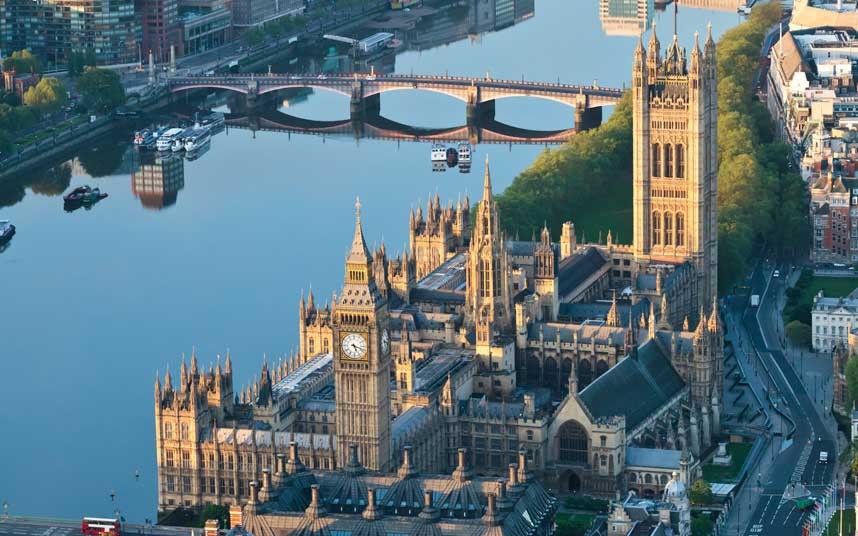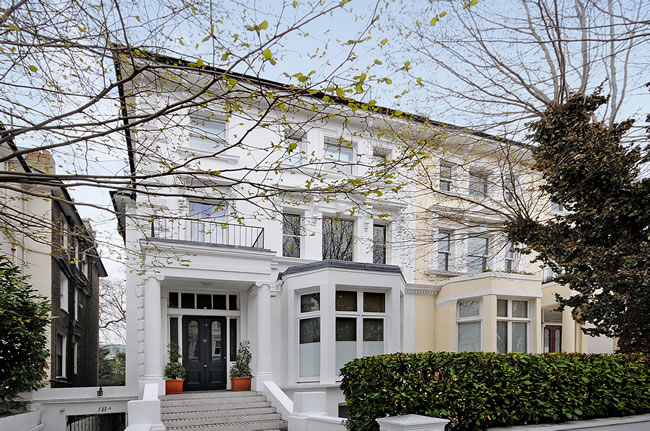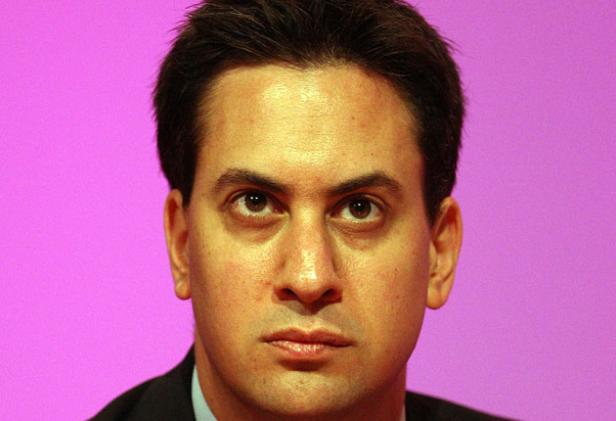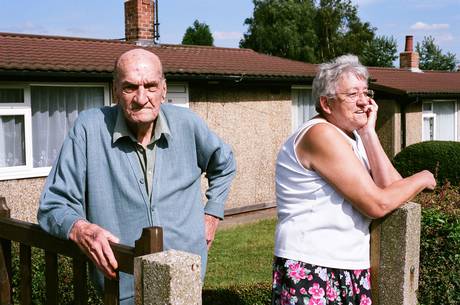486: Lurch to the left - impact for property investors
09-28-2013
PropertyInvesting.net team
Help to Buy: There is a raging debate about the Help to Buy scheme that from January 2014 will allow almost anyone to access help from the government to purchase both new and used properties with small deposits – 5% on properties up to £600,000.
It Wont Help Building Much: Chancellor Osborne mid-September came out and said he did not think the new policy is a weapon of mass destruction. What he did not explain is the policy is supposed to be a weapon of mass construction. It is supposed to stimulate housing supply by encouraging builders to build more homes. However, most people are rightly sceptical of whether the supply side will be boosted significantly even if price rose sharply. The problem is:
-
Builders risk averseness after many almost went bankrupt in 2008
-
Banks unwillingness to lend to builders – whilst lending rates to business are high compared to base rate
-
Planning regulations hold projects back – they are time consuming, expensive, risky and fraught with obstacles
-
A lack of low cost greenfield land
-
The high cost of labour and building materials
-
The inability to get planning permission for homes – without needing to pay taxes or high charges or construct affordable homes
-
Building regulations add significant cost and stifling the ability to build properties consumers actually want
No New Supply Regardless: The bottom line is, the supply side reaction to higher prices is not as strong as most people would believe. For instance, the rate of home building has been declining steadily for the last 20 years despite property prices tripling. Properties built in 2010 reached an all-time 100 year low of about 75,000 properties in a country with 60 million people. Even now, despite all the stories of a housing boom, there are only about 108,000 properties being built each year. To meet demand, about 300,000 properties need to be built. The bulk of these properties are needed in London and the South-East – in the rapidly expanding economy where there is a population boom. London grew by 800,000 people in the 8 years  prior to 2013 and is projected to increase by a further 800,000 people in the next 8 years – much of this increase is inward migration. Meanwhile hardly any properties are being built. No wonder London property prices are rising sharply. What exactly has changed to stimulate a big building programme - nothing.
prior to 2013 and is projected to increase by a further 800,000 people in the next 8 years – much of this increase is inward migration. Meanwhile hardly any properties are being built. No wonder London property prices are rising sharply. What exactly has changed to stimulate a big building programme - nothing.
That said, most parts of the UK are not suffering any particular demand crunch – it’s only really in SE England and London that there is a big supply-demand imbalance. If you go to NE England, you will find plenty of empty properties, low rents and low property prices. The same is the case in West Wales.
What Bubble? When people refer to a property bubble – it’s just not accurate to describe 95% of the UK as being in a property bubble. The average house price increase outside London in the last year has been about 3% - which is exactly what general inflation has been. So in real terms, house prices have not risen at all. Yes, we can point to 2% of the UK’s area – that’s central London – seeing property price increases of 10% in the last year, but that’s a global market driven by foreign investors. It’s not really a true reflection of the broader UK property market. Regardless of the policy starting in earnest in January 2013, it will be cancelled by May 2015 if/when Labour get into power.
Land Seizure: The Labour Conference (25 Sept 2013) really spooked economists, businesses and markets. The Labour party promised to seize land from developers – claiming developers are sitting on land banks. But in reality, half of usable land is being built on at present – and the other half is mired in planning delays and negotiations on taxes, infra-structure fees and affordable homes with Councils stalling to try and get a larger slice of any returns that might be made. If Labour bring in this land seizure policy, it’s likely to back-fire and lead to even less building. Who in their right mind would invest in building homes if land could be seized and regulations put in place to stop profits being made. It will surely lead to less building, higher home prices and higher rents.
Energy Prices: Labour also plans to freeze energy prices – this is likely to lead to less power stations being built, less spare capacity and eventually far high energy prices as energy provider desert the UK and invest overseas instead – the risk of regular black-outs has risen sharply since spare capacity is declining annually. £1 billion of value was wiped off Centrica share prices in a day. Who will pay for the switc h to renewables energy sources to reduce CO2 emissions that Ed Milliband mandated back in 2007 when he was Energy Secretary? Labour energy policy is already shaping up to be a complete mess – and very damaging for the UK economy and business. This populist socialist part nationalisation of the energy sector will undoubtedly drive away indigenous and foreign investment in UK energy just when £100 billion of investment is needed in the next ten years to renew energy supplies - after the decline in UK oil and gas - partly caused by successive tax hikes – two by Labour and one by the Tory Coalition since oil peaked in 1999.
h to renewables energy sources to reduce CO2 emissions that Ed Milliband mandated back in 2007 when he was Energy Secretary? Labour energy policy is already shaping up to be a complete mess – and very damaging for the UK economy and business. This populist socialist part nationalisation of the energy sector will undoubtedly drive away indigenous and foreign investment in UK energy just when £100 billion of investment is needed in the next ten years to renew energy supplies - after the decline in UK oil and gas - partly caused by successive tax hikes – two by Labour and one by the Tory Coalition since oil peaked in 1999.
It’s worth pointing out on energy the following:
-
CO2 emissions targets are the main reason energy prices are rising – these are government mandated rises – Ed Milliband was instrumental in kicking this off when he was Labour Energy Secretary
-
There has been an UK oil and gas production crash since the last tax rise in March 2011 – production is 33% lower now leading to pressure on energy prices – the government triggered the drop in investment with their tax rise (Labour put two tax rises in place between 1999 and 2010 and presided over a halving of oil and gas production in this period – leading to higher gas import prices)
-
Successive governments have failed to increase nuclear power capacity – old nuclear plants now need decommissioning and there is no money to pay for this
-
Coal burning power plants are aging, dirty and highly polluting – many are on their last legs and large investment is required to keep them going
-
New gas power plants mostly rely on gas imports – from Russia and Norway – our energy security is very low because the UK has the least spare gas storage capacity available compared to our Eurozone neighbours and the UK is the “end of the line” for Russian gas imports – the cold snap last w
 inter saw a three-fold increase in gas prices in 24 hours in part because the continent keep the gas and the UK was “last in line” or the “first for a black-out”. The UK came about 2 hours away from running out of gas last winter.
inter saw a three-fold increase in gas prices in 24 hours in part because the continent keep the gas and the UK was “last in line” or the “first for a black-out”. The UK came about 2 hours away from running out of gas last winter.
This is the mess we are already in - as a backdrop to Ed Milliband’s highly damaging energy price freeze promise. The un-intended consequence of this socialist move would be private sector funding deserting companies, companies pulling the plug on new projects and energy shortages and black-outs after these issues feed through. This would all have a hugely damaging effect on the UK’s reputation for markets and business – a return to the days of “the sick man of Europe” – which the UK was referred to before the discovery of North Sea oil saved the nation from 1980 onwards.
For property investor, the whole economic and political scene in the UK looks set to deteriorate. There will be a General Election in 2015. Ed Milliband’s father was a Marxist – we should expect a lurch to the left if we believe what he said at the Labour Conference end September. No more “New Labour”. You might ask, how could Labour get into power? The answer is – very easily. These reasons are:
-
Many people who have seen their living standards drop empathise with their populist policies
-
The Tory vote has been split with UKIP taking 10%
-
The Liberal-Democrats will hope for another hung parliament – then they can choose to join Labour if
-
Labour need them for a majority (Vince Cable is a key driver – and used to be a Labour MP)
The Tories only chance of victory is if Scotland gain independence before 2015 – then all the Labour seats will be lost – the chance of this happening by 2015 are minimal.
Labour Will Win: Despite Ed Milliband not being trusted with the economy and not being particularly popular, our view is that Labour will either win with an outright majority in 2015, or win through a Co alition with the Liberal Democratic government. We see only a small chance of the Tories maintaining their Coalition and power and almost zero chance of a Tory majority.
alition with the Liberal Democratic government. We see only a small chance of the Tories maintaining their Coalition and power and almost zero chance of a Tory majority.
Impact on Property: This is very important for property investors of course. Property owners will become targets for tax increases, mansion taxes, increases in Council tax, seizure of building land banks and increased mandated affordable home building programmes that would stifle building programmes. Overall, despite Labour promising to build 200,000 homes a year, we actually think the levels of building would drop because no private sector building company will be able to afford the higher taxes, increased regulation and government interference. This would eventually lead to higher rents – although property prices would probably drop sharply. Levels of building would drop as GDP declined and lending became more difficult to access – as global markets lost interest in funding the UK government programmes. It’s worth considering this now – because 2015 is getting close now. If you need to re-position your portfolio, now is the time to think about it.
If you see the damage socialist policies create – look no further than France where since the socialist got into power, taxes have risen sharply, investment has dropped, growth has dropped, unemployment has risen and many wealthy French people have deserted their country to escape punitive taxes – some have even renounced their citizenship. This could quite easily happen in the UK and London as well. Ed Milliband makes Gordon Brown look like a moderate.
Short Lived Boost For North Before Money Runs Out Again: If and when Labour get back into power, public spending in northern and rural areas could pick up for a short while, creating a temporary boost, but we think this would be followed by a severe decline as GDP dropped overall as the economy in London suffered from higher taxes and more regulation – and an onslaught on profitable businesses. Ultimately the UK would start heading in the direction of France – but at a faster declining pace s ince the balance of payments deficit is worse and the private and public sector debts are higher in the UK compared to France.
ince the balance of payments deficit is worse and the private and public sector debts are higher in the UK compared to France.
Only 20 months left: So enjoy the property prices increases whilst you can – because they are unlikely to last after 2015 when the Labour party get back into power. Central London prices by then will be particularly badly hit – especially when mansion taxes are enacted. Buy to let investors are also likely to become targets for punitive taxes – since Labour will be trying to help tenants – so don’t be surprized if rent price regulation is proposed. This would of course stifle the buy to let sector, reduce supply and put upward pressure in rents – the unintended consequence of regulation. But this is likely to fall on deft ears. Red Ed will lurch the UK back to a 1970s style socialist left.
We hope you have found this Special Report helpful to frame investment decisions in the UK looking in a 2-3 year time span. We wish we could be a bit more upbeat, but regrettably there are clouds on the horizon all property investors need to consider.

